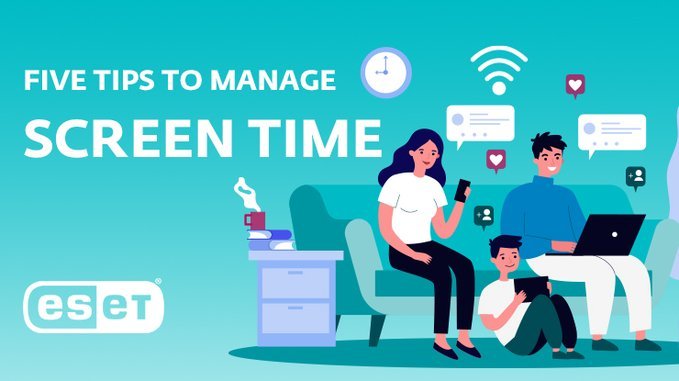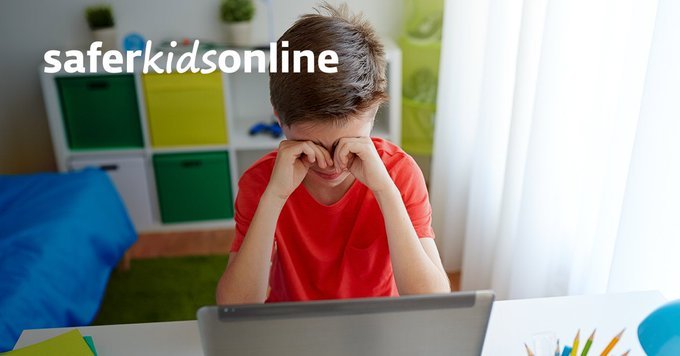During the recent quarantine, many parents had to work from home with their children who also stayed at home as schools remained closed.
During this time, many parents have been forced to allow their children to spend more time in front of a cell phone, computer, or television screen.

In addition, as we move more and more to distance learning, many school and social activities of children took place only through the internet and electronic devices.
Today, on-screen time management is more difficult than ever.
ESET, in collaboration with psychologist PhDr. Jarmila Tomková, gives five basic tips on how parents can find the right balance for this topic.

1. Get an active role
Pay attention to what your children watch and do when they use electronic devices and control their reactions during and when they close the screen. Appropriate and interactive content should have a positive rather than a negative effect on children's behavior. So if you see them crying or looking angry or aggressive after an online game or cartoon series, then take some time to find out why.
Searching for content on Internet together with the child - for example, discussing a movie and the possible ways in which the ending could have been different - can be a constructive experience and point of knowledge for both of you.
2. Redefine rules and boundaries
See again how your daily routine has been shaped and with the help of technology set new rules. Parental apps control (parental control) can create a safe online experience, but also help you set boundaries. These applications allow you to limit the time your children spend on the Internet and online games and block websites with inappropriate content. They also "give" children a voice, allowing them to ask you for permission to play or browse more on certain websites.
Another thing you can also do in consultation with the rest of the family is to create a written "digital contract" that will determine the time you can all spend online. This digital contract should include you, the parent. Committing to a break from work at a specific time each day to spend time with your family will set a good example for everyone.
3. Educate them on the media and the Internet safety
Children have the technical skills to use digital devices. However, this does not mean that they automatically know how to use them responsibly. It is very important to discuss with them the differences between the internet and real life. Like for example someone using a picture of a little boy on their profile might actually be an adult. This is also a good opportunity to calmly give them online safety tips, such as not responding to a stranger's request for your home address or photos you.
You can spend time online with your children to expose them to content that is meaningful, cute or that enhances their creativity. You can show them, that is, how the internet offers tools for learning and exploration. For example, ask your child to name a country. Then find it online on the map, see photos, learn about its history, etc.
4. Keep your balance
It is important to stay away from the screen, both for the good of the children and for your own good. As a parent, you can choose ways to "connect" and meet the needs of the whole family without the use of technology. Getting kids involved in preparing meals or shopping online for food and necessities, reading a book or planning family activities are some good ways to break the routine.
5. Keep your cool and take a break
It has been shown that when children spend a lot of time with books, educational toys, hobbies, etc. and have many positive interactions with family members, time in front of the screen ceases to be associated with internet addiction. Finally, in conditions of long stay at home such as those during quarantine, some days will flow more easily than others, so stay calm and remember to take a break.





